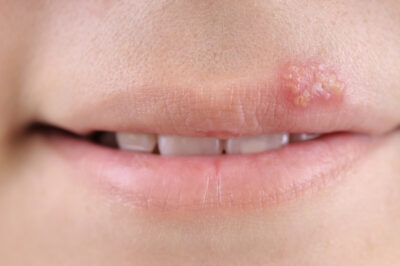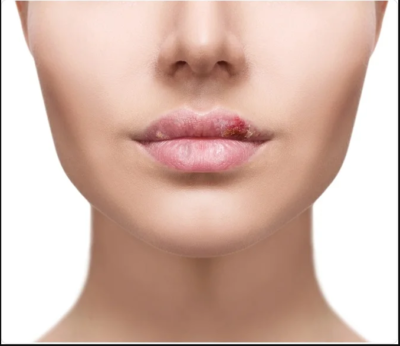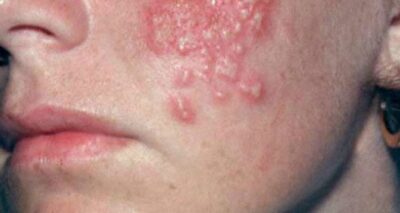 Herpes treatment is applied to control herpes that appear in certain parts of the body. There are some antiviral drugs that are good for herpes. Although these antivirals do not completely remove the virus that causes herpes from the body, they control the existing infection and ensure the eradication of the herpes. In order for herpes treatment to give positive results, it is necessary to consult a doctor at an early stage. In advanced cases, herpes treatment gives a delayed response.
Herpes treatment is applied to control herpes that appear in certain parts of the body. There are some antiviral drugs that are good for herpes. Although these antivirals do not completely remove the virus that causes herpes from the body, they control the existing infection and ensure the eradication of the herpes. In order for herpes treatment to give positive results, it is necessary to consult a doctor at an early stage. In advanced cases, herpes treatment gives a delayed response.
Contents
What is herpes?
Herpes can occur due to more than one reason. It mostly occurs in the lips, nose and chin areas. Herpes is usually a bothersome skin problem. It is quite painful and can sometimes even make it difficult to talk and eat. Herpes is a common problem experienced by almost all people. It can be a sign of an infection in the body. One of the causes of herpes is the virus called herpes.
If herpes becomes inflamed, it becomes contagious. It spreads through skin contact. Sometimes, factors such as stress and hormonal changes affect herpes. These minor infections, which are a very irritating skin problem, usually go away on their own within a week. However, in very advanced cases, herpes should be taken under control with herpes treatment.
The virus that causes cold sores is a virus called herpes simplex. This virus causes painful sores called herpes on the lips, gums, tongue, mouth and inside of the cheek. Although rare, there are also side effects such as fever and muscle pain. This virus only affects humans. The virus named Herpes manifests itself in three stages after being infected in the body. These:
Primary infection: In the primary infection stage, the virus multiplies by entering the skin or mucous membrane. Therefore, effects such as sores or fever in the mouth may occur. The virus may not cause any wounds or symptoms. Therefore, the person may not realize that he has herpes. This is an asymptomatic infection.
Passive period: The virus passes from the infected area to the nerve tissue in the spine, called the dorsal root ganglion. It reproduces in this region and becomes passive.
Relapse: The virus becomes active again in a period when the person is faced with emotional or physical stresses, or in cases such as feverish illness or excessive sun exposure. Thus, new wounds and symptoms may occur.
What are the types of herpes virus?
 Herpes virus types are divided into two. These are herpes simplex virus type-1 and herpes simplex virus type-2. Type-1 herpes infection mostly occurs in and around the mouth. It is also frequently seen in the tips of the fingers, gums and genital area. It can be transmitted by mouth or skin contact or by using personal belongings of infected people. This virus, which is usually passed from adults to children during childhood, settles in the body and shows symptoms in later ages.
Herpes virus types are divided into two. These are herpes simplex virus type-1 and herpes simplex virus type-2. Type-1 herpes infection mostly occurs in and around the mouth. It is also frequently seen in the tips of the fingers, gums and genital area. It can be transmitted by mouth or skin contact or by using personal belongings of infected people. This virus, which is usually passed from adults to children during childhood, settles in the body and shows symptoms in later ages.
Type-2 herpes infection is an infection that is usually seen in the genital area. The infected person may not show any symptoms. However, during sexual intercourse, the virus can easily be transmitted to another person through the genital or anal area. Similar to type-1 infection, herpes can spread to different parts of the body by contact in type-2 infection.
What causes herpes?
The most important cause of herpes is the virus called type-1 herpes. Type-2 herpes, on the other hand, occurs mostly in the genital area. However, both viruses can be found in the mouth and genital area. Many people become infected with type 1 hermes by the age of 20. In the first post-infection period, the virus goes into sleep mode in the nervous tissues of the face. In the following periods, it becomes active from time to time and causes recurrent infections. Even if there are no symptoms, the virus can easily be transmitted to others.
If the herpes wound is crusty and dry, it is not contagious. However, in the following periods, if a liquid starts to come from the herpes wound, then the herpes has become contagious. The virus that causes herpes is transmitted in the body through contact. At the same time, factors such as kissing and oral sex cause herpes to spread through the mouth. Apart from these, factors such as hormonal imbalances, fever, fatigue, emotional and physical stress, trauma to the skin and exposure to intense sunlight can also activate the virus that causes herpes and cause herpes. All these problems are solved with herpes treatment.
In which vitamin deficiency does herpes occur?
There is no one-to-one scientific connection between any vitamin deficiency and the development of herpes. However, it is known that some vitamins are very useful for the treatment of herpes. For the treatment of herpes, your doctor can give supportive vitamins and minerals.
How is herpes diagnosed?
Revealing clinical findings may be sufficient for the diagnosis of the disease. Infection caused by herpes virus can be diagnosed by a dermatologist with a naked eye.
In advanced cases and in pregnant or chronically low immune patients, a laboratory test may be required by taking a certain amount of herpes in order to increase the effectiveness of herpes treatment. In addition, various blood tests are commonly used to detect asymptomatic cases.
What are the symptoms of herpes?
– Watery blisters
– Fever
– Itching
– Tingling in the lips
– Dry and irritated skin on the lips or mouth
– Small blisters on the gums, lips, roof of the mouth and inner cheeks
– swollen lymph nodes
– muscle pain
– Redness
– Symptoms such as sore throat and headache may be seen.
In recurrent cases (usually 60 or 90 percent relapses), the patient may not notice the symptoms at all. Or mild itching and burning occurs. Afterwards, the blisters that collect water heal by crusting.
After the virus enters the body, it settles in the nerve ganglia and when it finds the appropriate environment, it mostly follows the nerve tissue from there and creates herpes on the skin.
What is the incubation period for herpes viruses?
The incubation period is the period of emergence of the effects of the disease after it has been acquired. Herpes viruses have an incubation period of 2 to 12 days.
How is herpes virus transmitted?
Herpes is one of the most common skin problems among infectious diseases. Viruses that reproduce in the genital area can spread after unprotected sexual intercourse. Herpes occurring in the mouth area and other areas are also transmitted by contact. In case of sharing personal belongings or contacting the infected area, the possibility of herpes transmission is very high.
Apart from all these, herpes can also occur in the body in cases such as hormonal changes, fear and stress.
How is herpes treatment applied? How does herpes pass?
With herpes treatment, herpes are usually controlled with pills or creams prescribed by a dermatologist and are eliminated from the body. Different antiviral and systemic drugs are effective for the treatment of herpes, depending on the period and severity of the infection. If you have frequent herpes attacks during the year, your dermatologist can apply suppression treatment, and it is aimed to stop herpes outbreak with suppression treatment.
The antiviral drugs used for herpes treatment applied in both types of infections are as follows:
– Acyclovir
– famciclovir
– valacyclovir
These drugs, which are usually in the form of creams, differ depending on which parts of the body the herpes symptoms occur.
Compliance with the doctor’s recommendations during the period when the symptoms appear will cause the herpes treatment process to work more positively and reduce the pain. In general, the following points should be considered for the treatment of herpes:
– To keep the herpes area clean and to keep that area dry
– Preferring clothes that do not cover the wound
It can be said that herpes around the mouth usually lasts between 1 and 3 weeks, and herpes in the genital area usually lasts between 2 and 6 weeks. This process may also differ according to the immune system of the person.
Does herpes completely go away from the body?
As soon as the herpes virus enters the body, it is not possible to be expelled from the body. After recovery, the virus settles in the nerve nodes and goes into sleep mode as if hibernating. With the decrease of the person’s immunity, sometimes the same or sometimes different lesions may occur in different regions.
The periods when the person is very stressed will recur when he has a fever, hormonal imbalances or excessive sun exposure. People with the herpes virus need to raise their immunity. Thus, by giving a positive response as a result of herpes treatment, the probability of not repeating the virus increases.
What are the ways to prevent herpes?
 Avoiding contact with infected people and not using their personal belongings is one of the most effective methods of preventing herpes virus and infection. If these people infected with herpes virus have been in contact, cleaning the contact area under appropriate hygienic conditions will reduce the risk of transmission of the virus. Materials such as spoons, forks, knives and glasses used in common with people who have wounds around the mouth greatly increase the risk of contracting the virus. In addition to these, using personal products such as using make-up materials, using towels, etc. of infected people invites herpes virus. It is very important to be protected during sexual intercourse in order not to develop herpes in the genital area. People with herpes on their genitals should not have sexual intercourse.
Avoiding contact with infected people and not using their personal belongings is one of the most effective methods of preventing herpes virus and infection. If these people infected with herpes virus have been in contact, cleaning the contact area under appropriate hygienic conditions will reduce the risk of transmission of the virus. Materials such as spoons, forks, knives and glasses used in common with people who have wounds around the mouth greatly increase the risk of contracting the virus. In addition to these, using personal products such as using make-up materials, using towels, etc. of infected people invites herpes virus. It is very important to be protected during sexual intercourse in order not to develop herpes in the genital area. People with herpes on their genitals should not have sexual intercourse.
The implementation of all these and the observance of these precautions are the most effective methods for the treatment of herpes.
What should be considered for genital herpes?
In general, both type-1 and type-2 can be taken into the body when the herpes simplex virus is infected.
In addition, it should not be forgotten that especially in viral herpes called type-2, it is transmitted to the body by contact, and it should be kept in mind that there may be other sexually transmitted diseases. On the other hand, other viruses that are as easily transmitted and dangerous as type-2 herpes virus can be transmitted from the same person (such as jaundice, AIDS, syphilis). For this reason, it is important to detect other sexually transmitted diseases through tests in people with type-2 herpes.
People infected with genital herpes usually do not have many symptoms. However, some people may experience the following symptoms:
– A tingling or stinging sensation in the genital area
– Small and painful red blisters in the genital area
– Wounds that look like redness or cracks on the genitals.
How much is herpes treatment? Herpes treatment prices
Herpes treatment prices vary according to the region and severity of herpes. Pricing varies depending on the type of herpes that occurs in the person. It is not legal for centers approved by the Ministry of Health to indicate prices on their websites. You can reach our clinic by calling +90212 241 46 24 to find out the most suitable treatment method for you and for all your other questions.








ko3suu